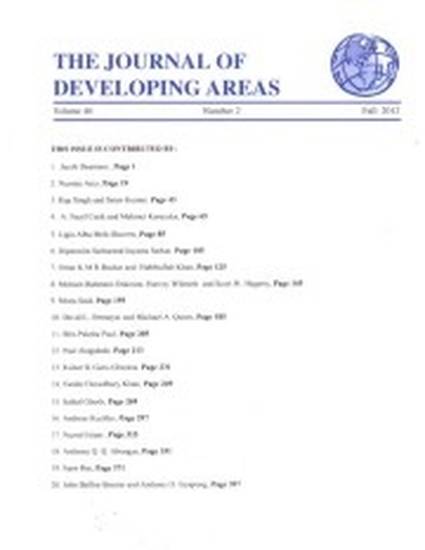
Article
Does A Real Devaluation Improve The Balance Of Trade?: Empirics From Bangladesh Economy
Journal of Developing Areas
(2012)
Abstract
Similar to many other developing countries Bangladesh, which is the country of my concern, has been pursuing an active exchange rate policy basically to maintain a viable external account position, and competitiveness of its products in world market. The purpose of the study is, therefore, to estimate the impact of real devaluation on country's trade balance. The study constructs nominal and real effective exchange rates which are not readily available for the country. Using multivariate cointegration tests for non-stationary data, the error correction model, and impulse response functions the paper examines the impact of exchange rate policy in both short-and long-run. The estimated results demonstrate that real exchange rate has a significant positive impact on trade balance in the long-run. Thus, currency devaluation has been a significant stimulus for country's exports growth and improvement in current account position. However, the J-curve hypothesis can be explained as the appropriate phenomenon to improve its trade balance in response to exchange rate devaluation.
Disciplines
Publication Date
Fall 2012
Publisher Statement
Project MUSE
Citation Information
Nusrate Aziz. "Does A Real Devaluation Improve The Balance Of Trade?: Empirics From Bangladesh Economy" Journal of Developing Areas Vol. 46 Iss. 2 (2012) Available at: http://works.bepress.com/nusrate_aziz/8/
